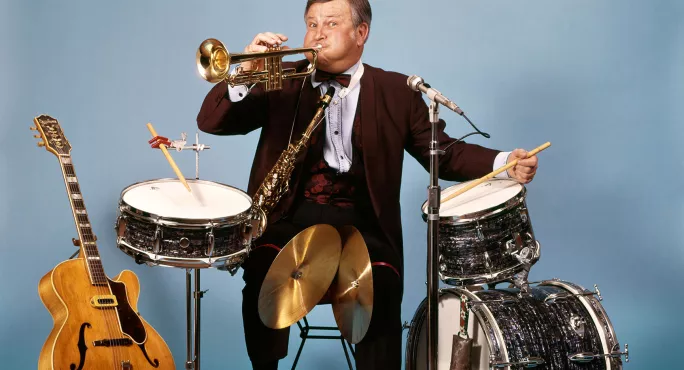- Home
- What other job requires performance art for 6 hours every day?
What other job requires performance art for 6 hours every day?

“I’ve got a presentation in work this week so I’ll be super stressed and busy,” says the twenty-something post graduate working in marketing in the City.
“Ah,” replies their teacher partner. “I’ve got twenty this week alone and my audience might not be as receptive as yours!”
Cue confused face.
A rarely understood aspect of teaching to those outside the profession is just how inherently exhausting the act of teaching actually is. In the eye of the beholder, many might see teaching as just that – standing in front of children and delivering information and getting an apple at the end of the lesson. But even at this level, the teaching act requires every ounce of the minds spirit, energy and zest to pull off effectively.
Standing up and speaking or performing in front of people is a stressful business. There is no other job I can think of in the world, apart from that of the educator, which asks someone to repeat this process 6 hours a day, five days a week.
Teaching is a performance piece, a fact that is overlooked completely by those who have never ventured inside a classroom. As soon as the bell rings and there are 30 expectant children waiting for you to do your job, you have to put your game face on.
The classroom is the stage, the rows are the stalls. The audience is children and they can be one tough audience to please. Some don’t want to be there, they are forced to buy a ticket and they’d all better enjoy the show. If they don’t, they are sure to heckle. Unlike the theatre, the only etiquette in the classroom is the etiquette the teacher enforces – when to laugh and for how long, when it's ok to shout something out and when it isn't, when to leave your seat to buy an ice cream, when to give a standing ovation. The best teachers don’t have scripts, they don’t learn some lines and reel them off, they have to act and deliver content in duality. While you are “on stage”, you can’t just walk off and re-start a lesson – it's never a dress rehearsal. No toilet break escapes, no respite despite the personal disaster looming at home. Your audience is always right.
And all the while, just off the stage, hovering in the wings is the second job teachers have; to please everyone else – the parents, school leaders, Ofsted, the government and the list goes on. There is little to show for the closed-door performance of a lifetime that you managed to pull of period 7 with Year 8. No one was watching. But it took every ounce of strength to “go again” after the poor reviews of the morning matinee.
The best teachers control and orchestrate the whole thing. They use their “teacher voice” – perhaps something more business-like, perhaps more authoritarian. The teacher stare, traditionally delivered over lowered spectacles, but often honed over years, used to steer away from a problem before it transpires. The teacher stance, shoulders back, head held high. Being conscious of when someone is falling asleep at the back when someone is trying to distract someone else, when someone is about to cry; those “eyes in the back of the head” is, in fact, a tuned in mind completely focused on every individual within that space. All of this is part and parcel of the teacher-performers routine. It’s a teacher’s job to engage all students in the common goal, to learn.
This is incredibly exhausting. Forget about marking, forget about planning, forget about data input, a teacher’s actual job, just the act of being active in that classroom, is inherently one of the most intense and demanding ever. Politicians and others who have never been at the chalkface won’t understand what it feels like to “walk off stage” after six performances in a row and then realise you have to do it again the next day. Whilst the west end performer who performs one, perhaps two shows a day, walks off exhausted, sometimes in tears, adrenaline streaming from their bodies. A teacher does 20 of them, by Friday, and collapses in the car, trying to keep their eyes open on the way home to a takeaway and zombie zone out.
In the words of Mark Twain: “It usually takes me more than three weeks to prepare a good impromptu speech.” Time just isn’t there for the average teacher, with all the competing demands, so teachers have to rely on quick thinking; “off the cuff” questioning, clear explanations delivered with little thought, meandering narratives delivered at a pace. These are the talents of the teacher. It requires a mind always “on” to perform at this level all day, every day. That’s why, whenever we talk of workload, it's often forgotten that teaching isn’t a “normal” job with excessive demands, its an abnormal job which makes the excessive demands impossible. Then teachers quit.
The ever-evolving nature of a single lesson in a single school makes teaching a tapestry of unpredictability. It's what makes it thrilling. It's also what makes it an insane undertaking. Respect for teachers can sometimes feel at a low, but talking about teaching challenge isn’t a sob story. Teachers love the challenge, they just sometimes get frustrated at the feeling that nobody really understands.
Tom Rogers is a teacher who runs rogershistory.com and tweets @RogersHistory
For more columns by Tom, view his back catalogue.
Keep reading for just £1 per month
You've reached your limit of free articles this month. Subscribe for £1 per month for three months and get:
- Unlimited access to all Tes magazine content
- Exclusive subscriber-only stories
- Award-winning email newsletters



